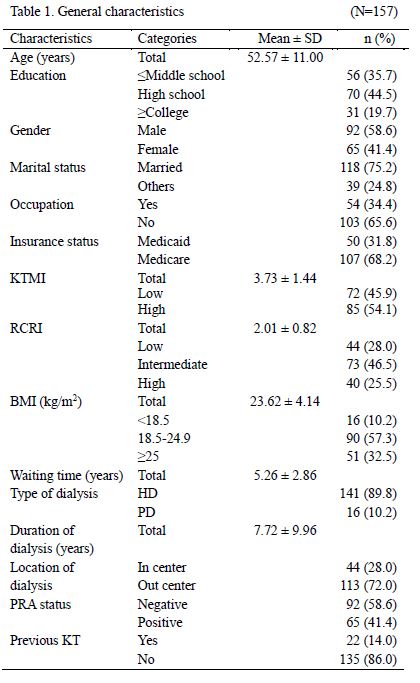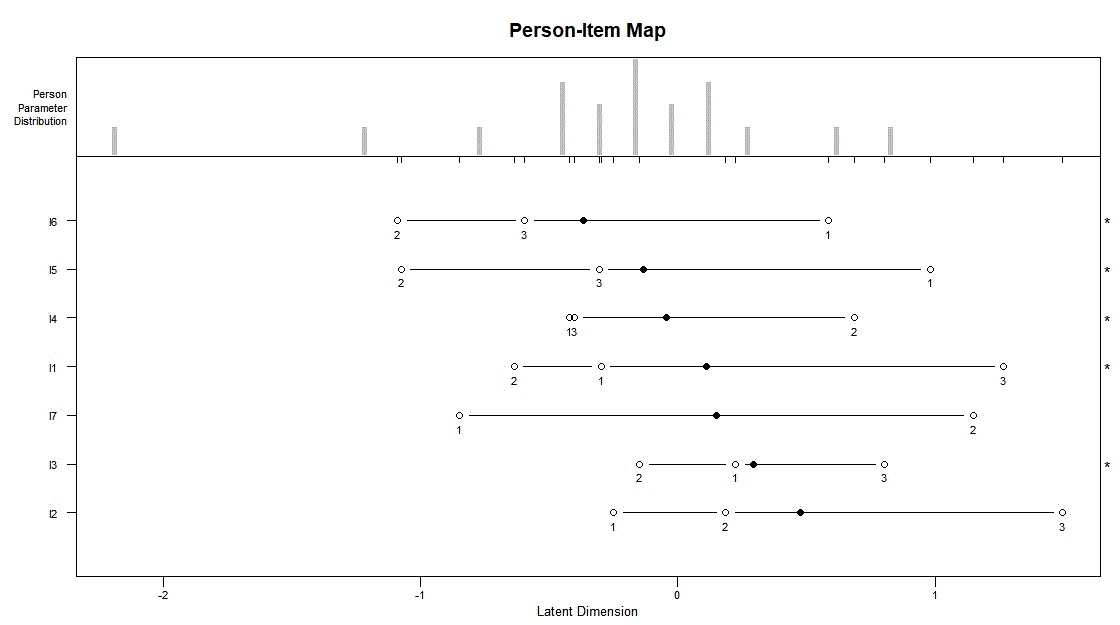Rasch validation of the psychosocial assessment of candidate transplant scale for patients on waitlist deceased donor kidney transplantation in South Korea
Hye Jin Chong1, Chang Park2, Sik Lee3.
1Department of Nursing, Sunchon National University, Sunchon-si, Korea; 2College of Nursing, University of Illinois at Chicago, Chicago, IL, United States; 3Division of Nephrology, Department of Internal Medicine, Jeonbuk National University Hospital, Jeonju-si, Korea
Introduction: Psychosocial assessment of transplantation candidates is an integral part of transplantation evaluation that allows early detection of patients vulnerable to psychosocial issues during their difficult waitlist period. Particularly in Korea, psychosocial assessment of candidates is a critical issue for transplantation professionals, given recent serious social issues such as the ongoing decrease in organ donors and the long waiting time for deceased donor transplantation compared with Western countries. Therefore, pretransplant psychosocial evaluation is necessary to be suitable for transplantation. However, no validated global standardized psychosocial assessment tool for candidates on transplantation waitlists is currently available. Transplantation professionals are having particular difficulties in managing kidney transplantation candidates, who form the largest group of organ candidates and experience the longest waiting times, and in identifying those who are eligible to receive a kidney. The Psychosocial Assessment of Candidates for Transplantation scale can be completed more quickly, improved clinical ease of use, shown good inter-rater reliability, and is a uniform framework for pre-transplant evaluation across all organ systems. Moreover, this tool fit Korean cultural circumstance. However, there is no validation study of this instrument among transplantation patients.
Methods: The study aimed to conduct a Rasch Item Response Theory analysis of the Psychosocial Assessment of Candidates for Transplantation scale to evaluate the validity and utility of the tool in Korean transplantation clinical practice. In a transplantation center in South Korea, 157 deceased donor kidney transplantation candidates on the waitlist were subjected to Rasch analysis using Stata. Each of eight 5-point Likert scales was categorized as a binary variable using a 3 cut-off.

Results: All the dichotomously categorized items fit the Rasch model. R1c statistic and Anderson test results showed that the model fit was stable (p>.05), and both outfit and infit statistics were between -1.94 and 1.07. The estimate of the item discrimination parameter was 1.416. Item difficulty was between -0.22 and 2.27, reflecting acceptable and good levels.

Conclusions: Rasch analysis is a rigorous evaluation of the tool to more objectively assess the psychosocial evaluation in a clinical setting. The strengths of the present study are that this scale was shown to have good item validity by using Rasch analysis’s ability to exclude the bias caused by the target population’s differing scale-response abilities and unique cultural characteristics. The findings indicate that this scale has the item properties of an effective screening instrument and is clinically useful as a valid psychosocial assessment tool for Korean kidney transplantation candidates.
This paper was supported by Sunchon National University Research Fund in 2020(Grant number: 2020-0227).

right-click to download
